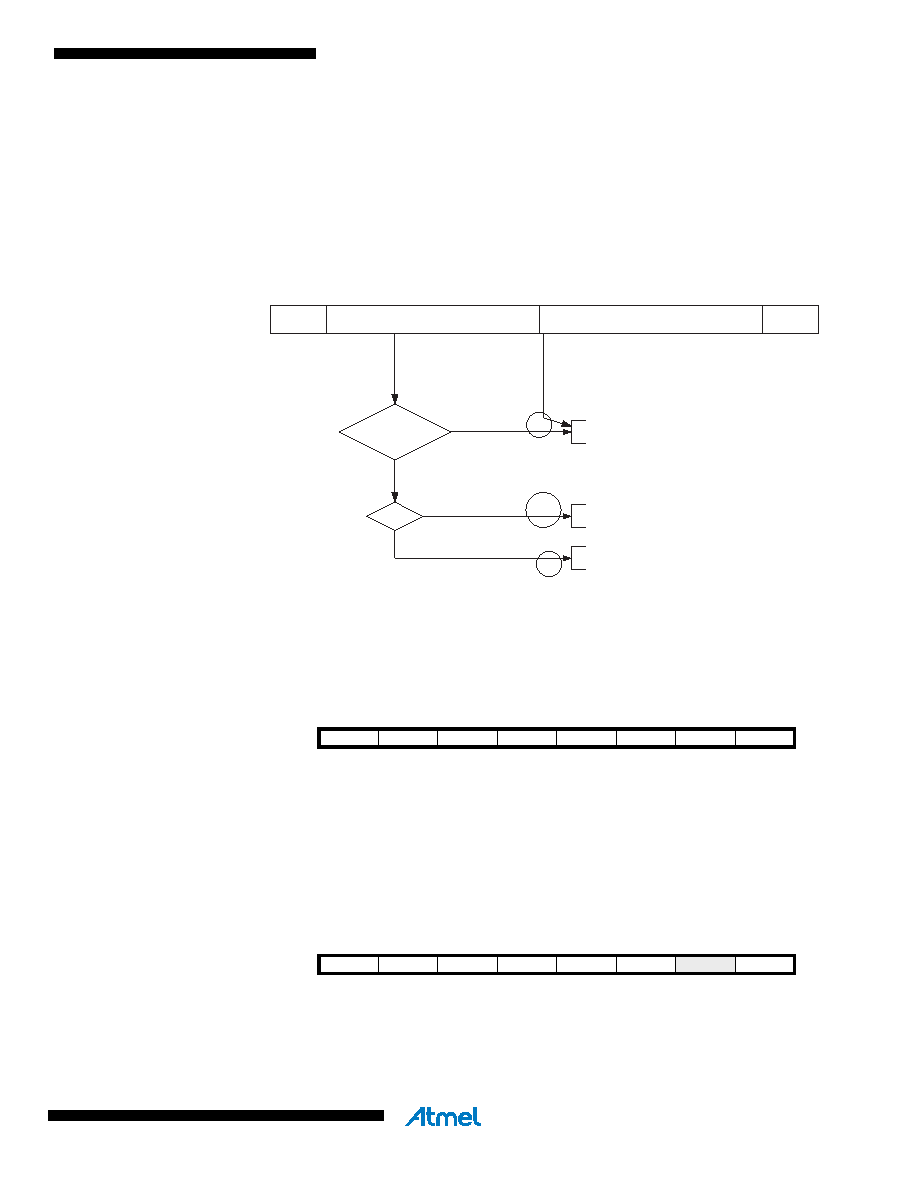- 您現(xiàn)在的位置:買賣IC網(wǎng) > PDF目錄25633 > MC80C52EXXX-30SHXXX:D (TEMIC SEMICONDUCTORS) 8-BIT, MROM, 30 MHz, MICROCONTROLLER, CDIP40 PDF資料下載
參數(shù)資料
| 型號: | MC80C52EXXX-30SHXXX:D |
| 廠商: | TEMIC SEMICONDUCTORS |
| 元件分類: | 微控制器/微處理器 |
| 英文描述: | 8-BIT, MROM, 30 MHz, MICROCONTROLLER, CDIP40 |
| 文件頁數(shù): | 152/326頁 |
| 文件大小: | 3228K |
第1頁第2頁第3頁第4頁第5頁第6頁第7頁第8頁第9頁第10頁第11頁第12頁第13頁第14頁第15頁第16頁第17頁第18頁第19頁第20頁第21頁第22頁第23頁第24頁第25頁第26頁第27頁第28頁第29頁第30頁第31頁第32頁第33頁第34頁第35頁第36頁第37頁第38頁第39頁第40頁第41頁第42頁第43頁第44頁第45頁第46頁第47頁第48頁第49頁第50頁第51頁第52頁第53頁第54頁第55頁第56頁第57頁第58頁第59頁第60頁第61頁第62頁第63頁第64頁第65頁第66頁第67頁第68頁第69頁第70頁第71頁第72頁第73頁第74頁第75頁第76頁第77頁第78頁第79頁第80頁第81頁第82頁第83頁第84頁第85頁第86頁第87頁第88頁第89頁第90頁第91頁第92頁第93頁第94頁第95頁第96頁第97頁第98頁第99頁第100頁第101頁第102頁第103頁第104頁第105頁第106頁第107頁第108頁第109頁第110頁第111頁第112頁第113頁第114頁第115頁第116頁第117頁第118頁第119頁第120頁第121頁第122頁第123頁第124頁第125頁第126頁第127頁第128頁第129頁第130頁第131頁第132頁第133頁第134頁第135頁第136頁第137頁第138頁第139頁第140頁第141頁第142頁第143頁第144頁第145頁第146頁第147頁第148頁第149頁第150頁第151頁當前第152頁第153頁第154頁第155頁第156頁第157頁第158頁第159頁第160頁第161頁第162頁第163頁第164頁第165頁第166頁第167頁第168頁第169頁第170頁第171頁第172頁第173頁第174頁第175頁第176頁第177頁第178頁第179頁第180頁第181頁第182頁第183頁第184頁第185頁第186頁第187頁第188頁第189頁第190頁第191頁第192頁第193頁第194頁第195頁第196頁第197頁第198頁第199頁第200頁第201頁第202頁第203頁第204頁第205頁第206頁第207頁第208頁第209頁第210頁第211頁第212頁第213頁第214頁第215頁第216頁第217頁第218頁第219頁第220頁第221頁第222頁第223頁第224頁第225頁第226頁第227頁第228頁第229頁第230頁第231頁第232頁第233頁第234頁第235頁第236頁第237頁第238頁第239頁第240頁第241頁第242頁第243頁第244頁第245頁第246頁第247頁第248頁第249頁第250頁第251頁第252頁第253頁第254頁第255頁第256頁第257頁第258頁第259頁第260頁第261頁第262頁第263頁第264頁第265頁第266頁第267頁第268頁第269頁第270頁第271頁第272頁第273頁第274頁第275頁第276頁第277頁第278頁第279頁第280頁第281頁第282頁第283頁第284頁第285頁第286頁第287頁第288頁第289頁第290頁第291頁第292頁第293頁第294頁第295頁第296頁第297頁第298頁第299頁第300頁第301頁第302頁第303頁第304頁第305頁第306頁第307頁第308頁第309頁第310頁第311頁第312頁第313頁第314頁第315頁第316頁第317頁第318頁第319頁第320頁第321頁第322頁第323頁第324頁第325頁第326頁

236
8272E–AVR–04/2013
ATmega164A/PA/324A/PA/644A/PA/1284/P
Two or more masters are accessing different slaves. In this case, arbitration will occur in the
SLA bits. Masters trying to output a one on SDA while another Master outputs a zero will lose
the arbitration. Masters losing arbitration in SLA will switch to Slave mode to check if they are
being addressed by the winning Master. If addressed, they will switch to SR or ST mode,
depending on the value of the READ/WRITE bit. If they are not being addressed, they will
switch to not addressed Slave mode or wait until the bus is free and transmit a new START
condition, depending on application software action
This is summarized in Figure 21-21. Possible status values are given in circles.
Figure 21-21. Possible status codes caused by Arbitration.
21.9
Register description
21.9.1
TWBR – TWI Bit Rate Register
Bits 7:0 – TWI Bit Rate Register
TWBR selects the division factor for the bit rate generator. The bit rate generator is a frequency
divider which generates the SCL clock frequency in the Master modes. See ”Bit Rate Generator
unit” on page 217 for calculating bit rates.
21.9.2
TWCR – TWI Control Register
The TWCR is used to control the operation of the TWI. It is used to enable the TWI, to initiate a
Master access by applying a START condition to the bus, to generate a Receiver acknowledge,
to generate a stop condition, and to control halting of the bus while the data to be written to the
Own
Address / General Call
received
Arbitration lost in SLA
TWI bus will be released and not addressed slave mode will be entered
A START condition will be transmitted when the bus becomes free
No
Arbitration lost in Data
Direction
Yes
Write
Data byte will be received and NOT ACK will be returned
Data byte will be received and ACK will be returned
Last data byte will be transmitted and NOT ACK should be received
Data byte will be transmitted and ACK should be received
Read
B0
68/78
38
SLA
START
Data
STOP
Bit
76543210
TWBR7
TWBR6
TWBR5
TWBR4
TWBR3
TWBR2
TWBR1
TWBR0
TWBR
Read/Write
R/W
Initial Value
00000000
Bit
76543210
TWINT
TWEA
TWSTA
TWSTO
TWWC
TWEN
–
TWIE
TWCR
Read/Write
R/W
R
R/W
R
R/W
Initial Value
00000000
相關(guān)PDF資料 |
PDF描述 |
|---|---|
| MR80C52EXXX-12:R | 8-BIT, MROM, 12 MHz, MICROCONTROLLER, CQCC44 |
| MR80C52EXXX-25:D | 8-BIT, MROM, 25 MHz, MICROCONTROLLER, CQCC44 |
| MQ80C52XXX-12/883:R | 8-BIT, MROM, 12 MHz, MICROCONTROLLER, CQFP44 |
| MQ80C52XXX-36:D | 8-BIT, MROM, 36 MHz, MICROCONTROLLER, CQFP44 |
| MR80C32E-12SB | 8-BIT, 12 MHz, MICROCONTROLLER, CQCC44 |
相關(guān)代理商/技術(shù)參數(shù) |
參數(shù)描述 |
|---|---|
| MC80D21000G | 制造商:COR 功能描述:RN |
| MC80F0104 | 制造商:未知廠家 制造商全稱:未知廠家 功能描述:8-BIT SINGLE-CHIP MICROCONTROLLERS |
| MC80F0104B | 制造商:未知廠家 制造商全稱:未知廠家 功能描述:8-BIT SINGLE-CHIP MICROCONTROLLERS |
| MC80F0104D | 制造商:未知廠家 制造商全稱:未知廠家 功能描述:8-BIT SINGLE-CHIP MICROCONTROLLERS |
| MC80F0204 | 制造商:未知廠家 制造商全稱:未知廠家 功能描述:8-BIT SINGLE-CHIP MICROCONTROLLERS |
發(fā)布緊急采購,3分鐘左右您將得到回復(fù)。